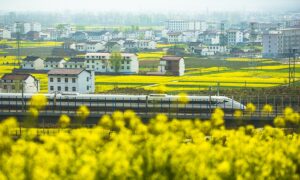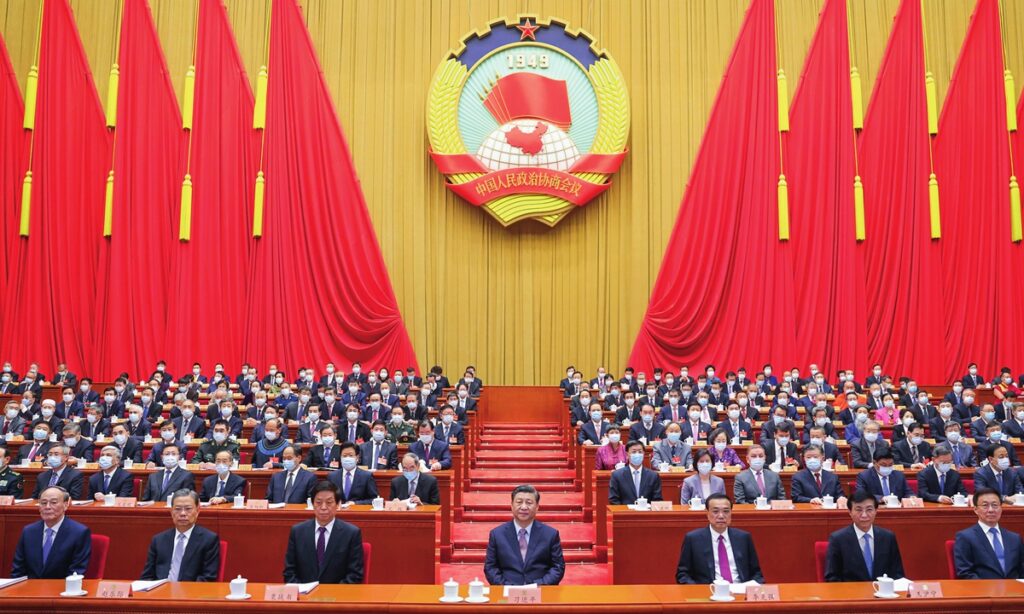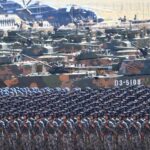By Yang Sheng, Cao Siqi and Wang Cong
China has formally entered the annual “two sessions” time Thursday as the country’s top political advisory body Chinese People’s Political Consultative Conference (CPPCC) kicked off. The National People’s Congress (NPC), the top legislative body, will start Friday.
After the difficult and challenging year of 2020, the attendees of the two sessions found they are bearing greater responsibility and expectations to contribute to the country’s economic recovery, further opening-up and reform and long-term growth plan.
Foreign media have also participated in reporting the two sessions as usual, but some Western media are still regarding the NPC as China’s “rubber stamp” legislature, which experts say reflects the same old bias and arrogance.
Having successfully completed the 13th Five-Year Plan in 2020, China is set to release the 14th Five-Year Plan and Long-Range Objectives through 2035 at the meetings. Some Chinese analysts predicted that China will overtake the US as the world’s largest economy by 2035, and China’s economy should be at least 1.5 times bigger than that of the US by that time.

The NPC, China’s top legislature, will start its annual session on Friday. Zhang Yesui, spokesperson of the 4th annual session of the 13th NPC, announced the agenda at the press conference on Thursday, which includes deliberating report on the work of the government; reviewing the draft outline of 14th Five-Year Plan; deliberating a draft NPC decision on improving electoral system of Hong Kong.
The session this year will run from March 5 to 11. On China’s defense expenditure issue, Zhang said that China will maintain a steady and proper increase in the defense budget.
Based on the recent situation in Hong Kong, the electoral system of the special administrative region (HKSAR) needs to keep up with the times. “To improve the HKSAR electoral system is the power and the responsibility of the NPC at the constitutional level,” Zhang said.
Chinese President Xi Jinping and other Chinese leaders attended the opening meeting of the fourth session of the 13th National Committee of the CPPCC at the Great Hall of the People. At the meeting, the agenda for the session was reviewed and approved, the Xinhua News Agency reported.
Wang Yang, chairman of the CPPCC National Committee, delivered a work report of the Standing Committee of the CPPCC National Committee to the session. A total of 5,974 proposals have been submitted since the previous annual session of the top political advisory body, said Gu Shengzu, vice chairman of the CPPCC National Committee, when delivering a report on the proposals, according to Xinhua.

Greater responsibility
Huang Xihua, an NPC deputy from South China’s Guangdong Province, said that after the most difficult year of 2020, she felt a stronger sense of responsibility.
“The COVID-19 epidemic has posed serious challenges to employment and tourism. Now we finally walk out of the darkest moment and I am endowed with duties to bring voices from the public to the central government,” Huang said. “The two sessions are a window for the world to observe China and I am expected to see my proposals about economic recovery, social insurance to be heard and hopefully be implemented after the two sessions.”
Zhu Zhengfu, a prominent Chinese lawyer and a member of the National Committee of the CPPCC, felt an evident relief from the COVID-19 epidemic situation this year compared with last year’s attendance of the two sessions.
“Just in one year, I have witnessed how the country controlled the virus spread and how China’s political system demonstrates its advantages in facing the global health crisis,” Zhu said, noting that he is confident that this year’s two sessions, which usher the country into a new era, will bring changes to the business environment, fair competition and legal protection.
Zhu had been calling on scrapping the controversial custody-and-education regulation for sex workers for three straight years in the two sessions and in 2019, China abolished the regulation which had led to the detention of prostitutes and occasionally their customers for up to two years without trial.
Apart from Zhu’s proposal, China has witnessed an increasing number of important proposals brought by NPC deputies and CPPCC members being put into practice. For example, the proposal to include biological safety into a national security system was passed in October 2020 and will take effect on April 15.
During last year’s two sessions, in the wake of the COVID-19 epidemic, participants seized the opportunity to review and reflect on China’s response to COVID-19 at the early stage, and make proposals to improve China’s overall emergency warning and reporting system to better cope with the possible resurgence of COVID-19 and future infectious diseases. During the past year, China has established or revised several regulations and laws related to public health.
China’s substantial democracy
The most important annual political event of China also attracted great attention worldwide, but as always, some foreign media described the NPC as a “rubber stamp” legislature as they hold onto the belief that the NPC is unable to realize so-called “checks and balance” function as in the Western system, but Chinese experts said that these Western journalists and observers need to do some homework. Otherwise, one day they will regret their ignorance.
Zhang Weiwei, a professor and director of the China Institute of Fudan University in Shanghai, told the Global Times on Thursday that the two sessions have shown that China has an institutionalized substantial democracy, and its performance, especially in last year, was way better than the Western democratic system in terms of fighting the virus and development.
“This system, in normal times, can ensure the country to carry on a huge task, and in the emergency period, it’s able to unite the country with 1.4 billion people to overcome the unprecedented challenge,” Zhang Weiwei said.
But in Western democratic system, which most Western media and politicians stubbornly believe is the only correct path to the modernization, different parties found they are extremely difficult to reach an agreement, and even after the agreement has been reached, the head of the government could just overthrow it easily, said Song Luzheng, an expert on politics at the Fudan University.
Zhang said that if you read the government work report delivered by Chinese premier at the NPC annual session every year, and compare it to the state of the union address delivered by US President at the US Congress every year, “you will learn what is substantial democracy and what is democracy in name only.”
The CPC, China’s ruling party, will mark its 100th anniversary this year, and in the past century, the Party did make mistakes and some of them even led to tragedies. But today, China under the leadership of CPC, has grown to be the second biggest economy in the world and able to perform better than Western countries in many fields, and its people are living in a country with a safer society and better development than many other countries.
“If the system of democratic centralism in China is just a rubber stamp, how could the CPC and China get the outstanding self-correction ability, and eventually found a more suitable path for China’s modernization, instead of copying the systems of others?” said Song.

Modern ambitions
While annual political, social and economic policy priorities remain the focus at the two sessions, broader and longer-term development ambitions for the next 5 to 15 years are also drawing widespread attention this year, as the world is at a historic crossroads with profound power shifts propelled by the COVID-19 pandemic.
On the 14th Five-Year Plan and Long-Range Objectives through 2035, specific development goals remain to be seen, but suggestions from the top leaders released in November 2020 and various recent meetings have set the overall tone: building China into a socialist modern power. More specifically, China is seeking to further lift its economy to “new big stages” and significantly improve its economic, technological and comprehensive national strength.
While it has not been spelled out, that could mean China is seeking to double its 2020 GDP of about 100 trillion yuan and GDP per capita around $10,000 yuan in 2035, according to analysts.
“That means China would overtake the US as the world’s biggest economy by 2035, if it does not happen earlier,” Mei Xinyu, a research fellow at the Chinese Academy of International Trade and Economic Cooperation, told the Global Times on Thursday, adding that China will also surpass the US in certain key technologies, though GDP per capita could still lag behind.
Mei said that with China continuing to ascend in economic, technological and other areas, “[China’s] soft power or global influence would also rise, as the US remains engulfed in constant infighting… that is a certainty because soft power is built on ‘hard’ power.”
Though many have sought to use the US as a benchmark for China’s long-term development, some analysts argue that China’s future plans are so ambitious that a falling US can no longer serve as a standard.
“We should not see the US as a benchmark. We should focus on the world as a whole and on the needs of the people… it may be a bit aggressive but when we talk about 2035, we are just competing with ourselves,” Shen Yi, a professor at Fudan University’s School of International Relations and Public Affairs, told the Global Times on Thursday.
Shen said that the real competition is not about the size of the economy or military or global influence, but about the ability to govern and help people to better lives, which the US has failed in recent crises.
“The US still wields great global influence. But if it cannot govern effectively and help its people, so what? It can have 1.3 million aircraft carriers, but that would not help its domestic woes,” he said. “This is a race about which development path is the best for mankind.”
Global Times



